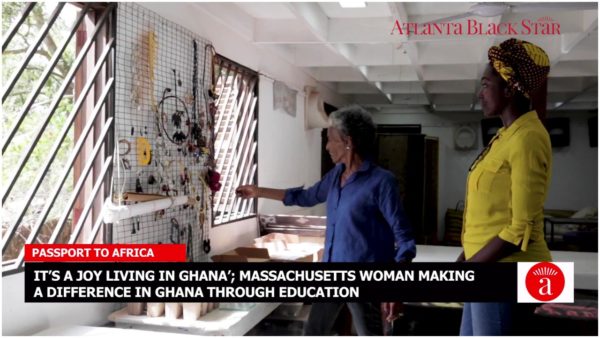“For America generally, if you stay there be prepared because American’s getting ready to go through a very serious period in its history. It’s really at a point of reckoning,” said Renee Neblett, an African-American woman who moved to Ghana in 1989. Originally from Massachusetts, Neblett is the founder and executive director of the Kokrobitey Institute, a private research and development facility that provides education through art, design, history, culture, and environmental studies.
Neblett decided to use education as a tool to explore the culture. She recruits students from the U.S. who attend her institution for semester studies abroad. Her programs are designed to use art and culture to teach young people about African environments. Neblett said it is a joy living in Ghana because she doesn’t have to think about what it’s like to question your existence as a human being.
“I left America shortly after the civil rights movement and I went to Germany to study,” she said. “When I returned … it was a bit of a shock to go back and to confront the language of minority recruiting and affirmative action.” She says that the struggle for equal access during the civil rights movement had shifted and became an institutionalized second-class citizenship for African-Americans. “It was clear to me at some point, that I did not want to have my life consumed in protest.”

Neblett sought ways to improve Ghana’s environment after seeing change over the last three decades because of single-use plastics. Neblett uses her institute to repurpose plastic and second-hand clothing to create useful items like lamps, furniture, and home décor.
“It allowed me to become part of this broader world of discourse of what’s happening to the environment,” she said. Neblett says everyone has a choice where they choose to live, but she certainly feels being in Africa is a place of peace. “Nobody looks at the color of my skin and imagines I’m not worthy or questions my humanity.”


